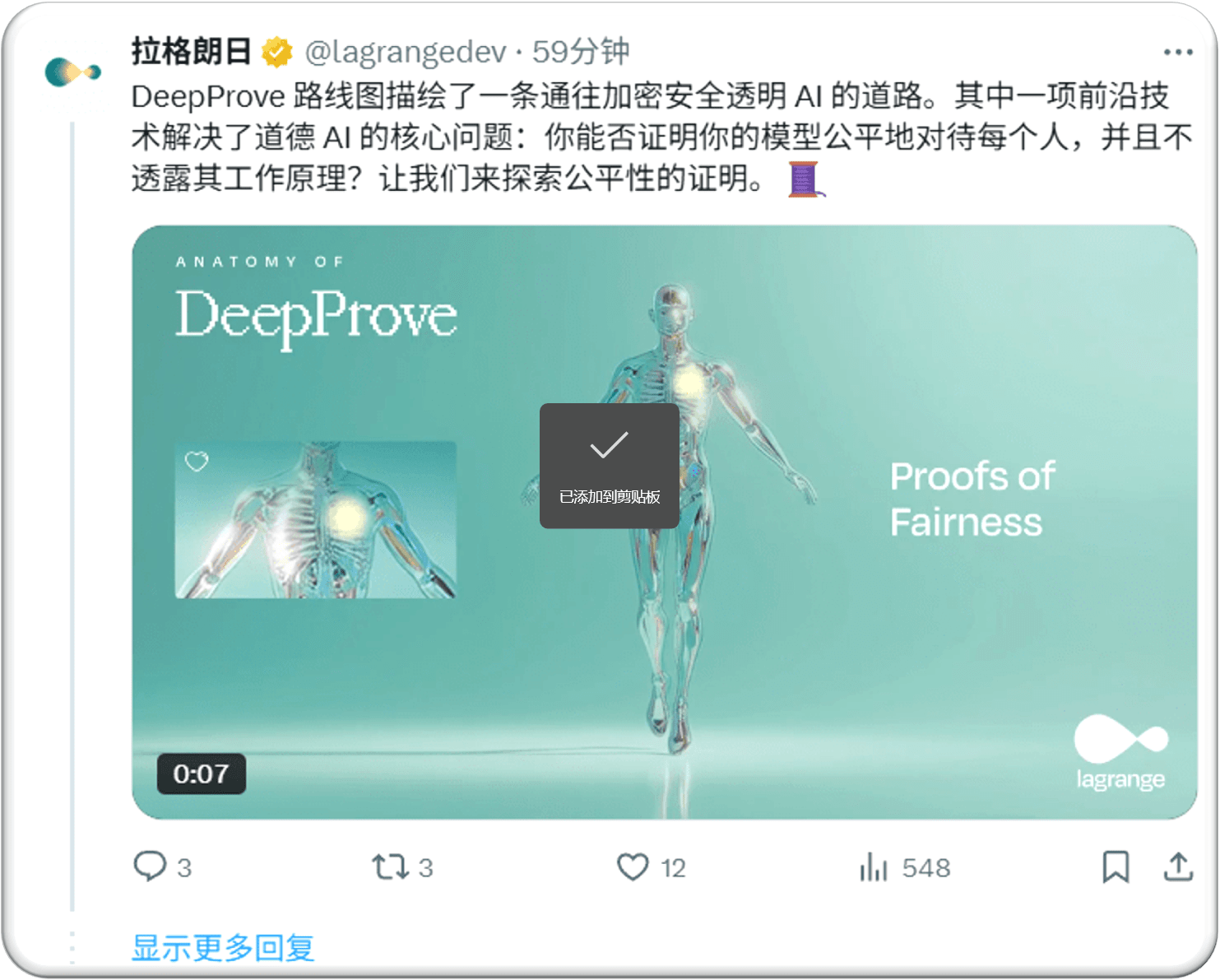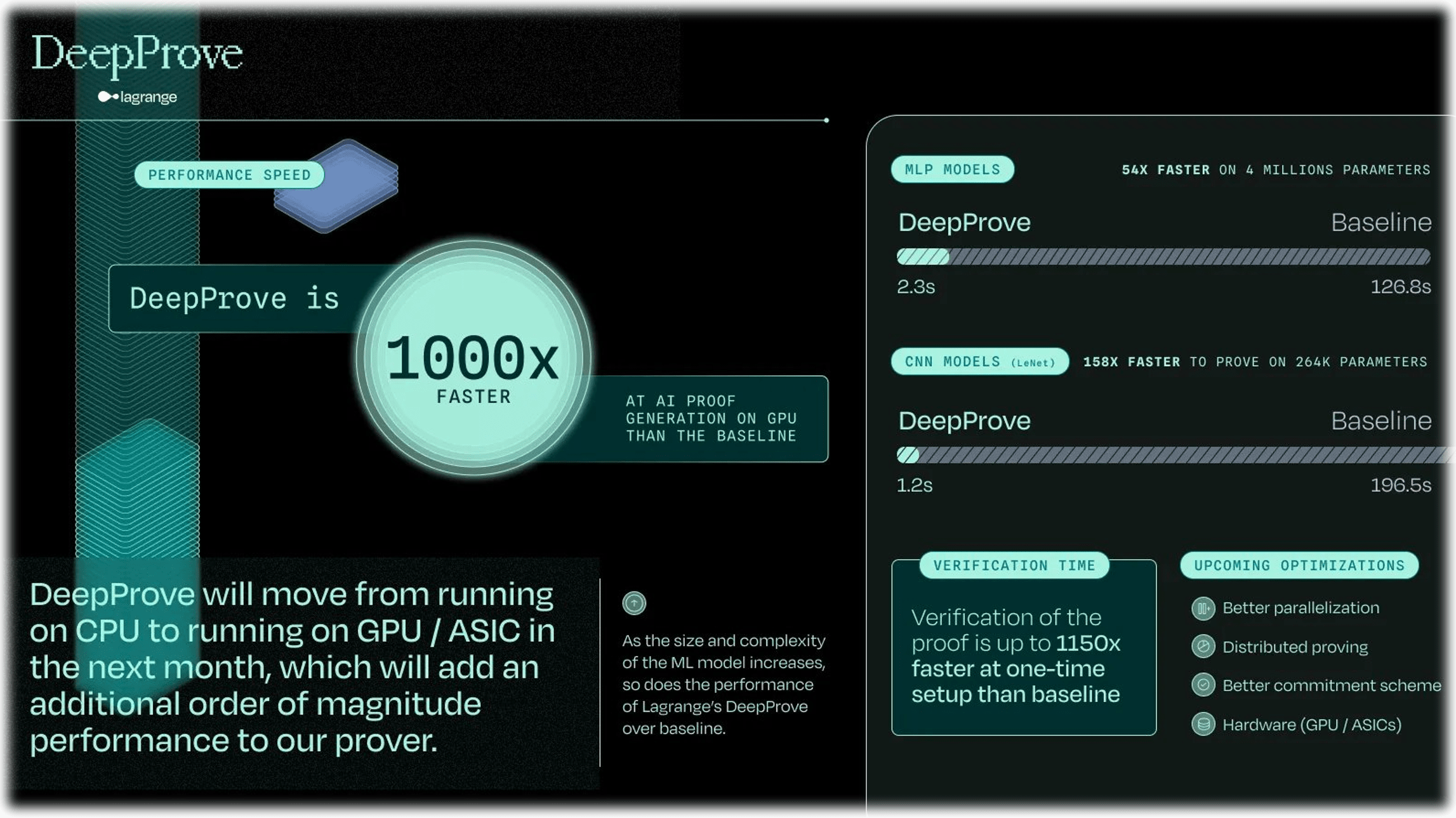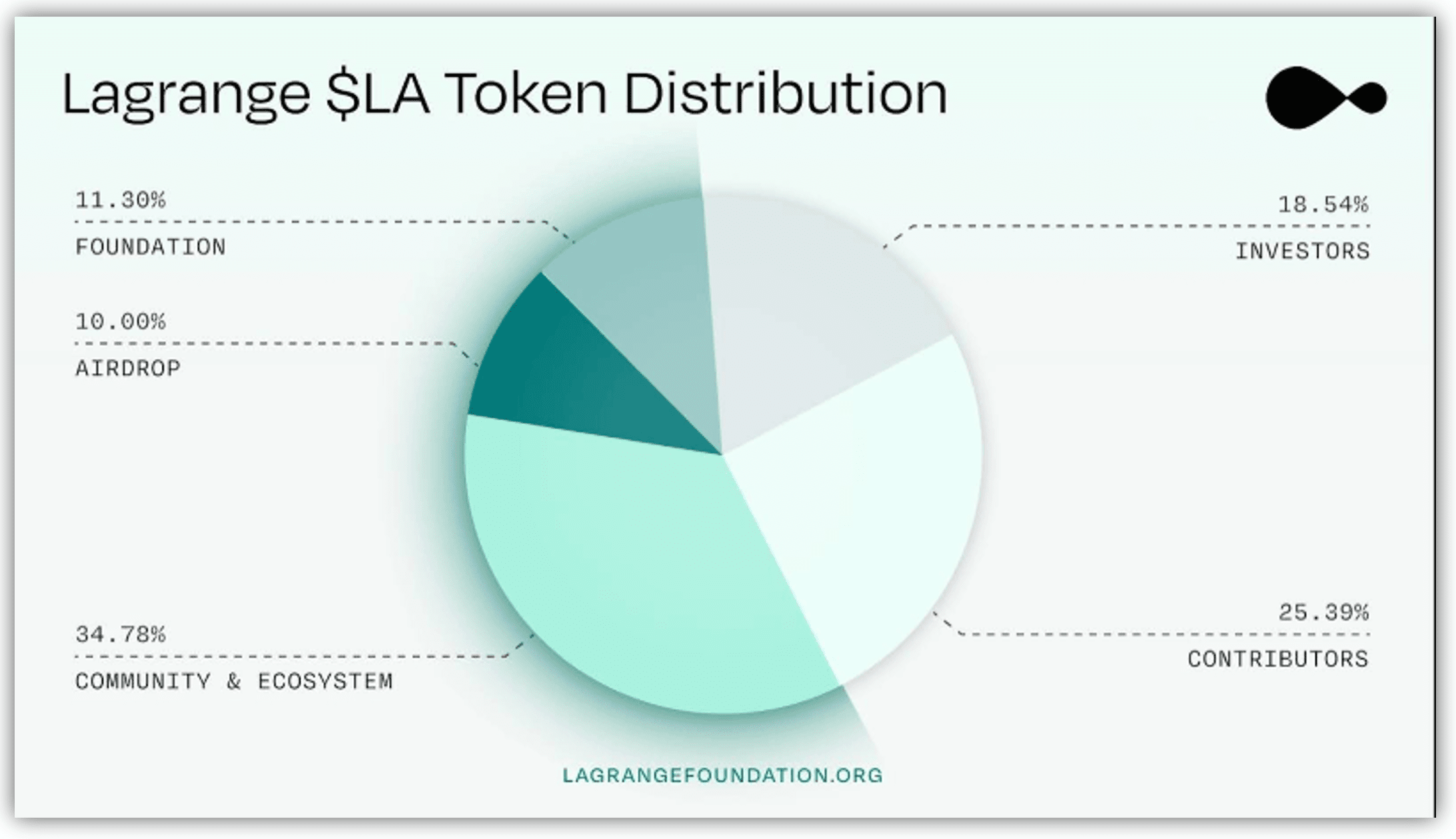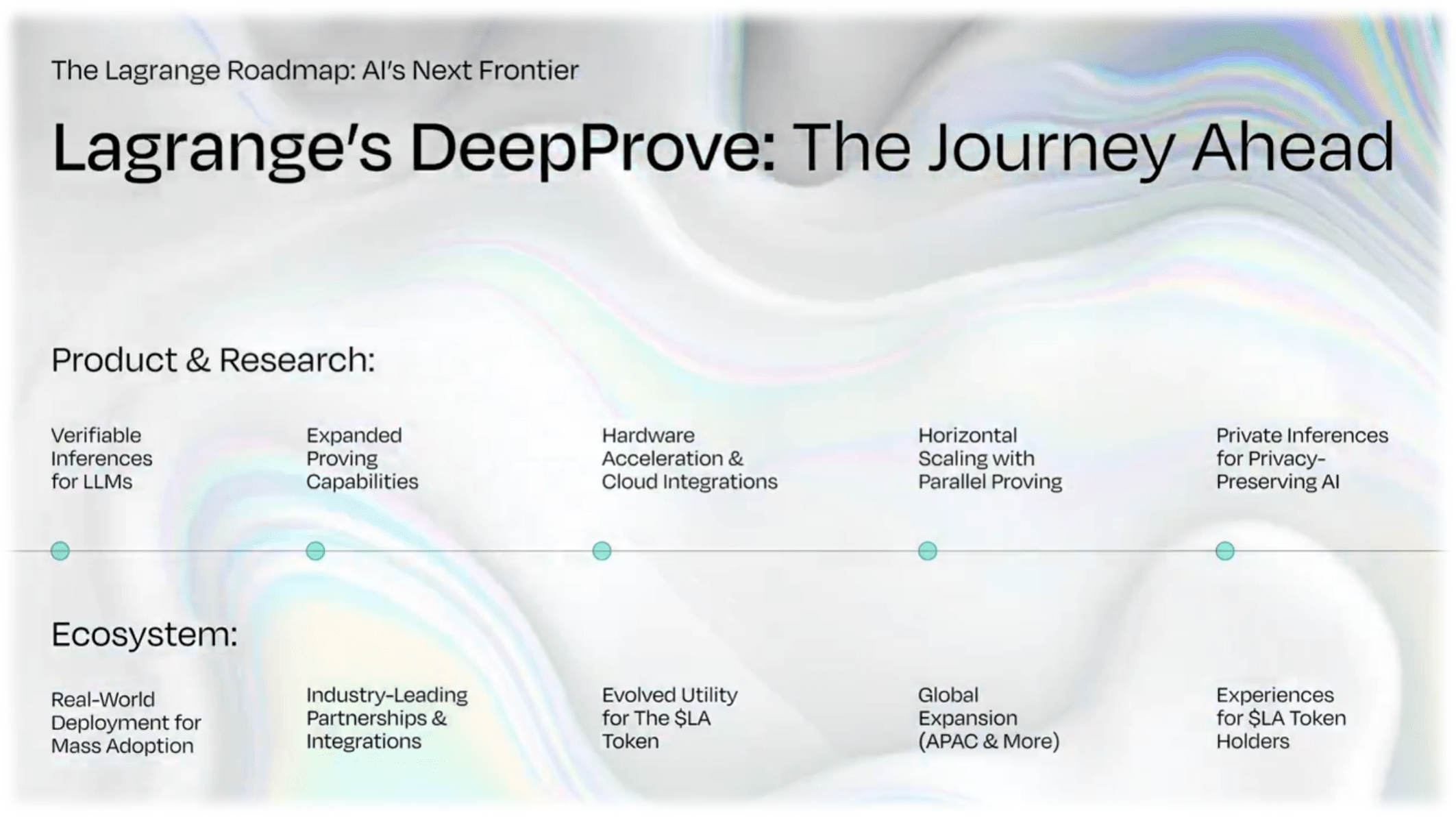In the wave of Web3 development, zero-knowledge proof (ZK) technology is becoming one of the most important infrastructures in the crypto world. Lagrange, as a project focused on zero-knowledge proofs, is bringing unprecedented changes to the blockchain ecosystem through a decentralized network and advanced computing solutions.

🧠 Introduction to the Lagrange Project
Lagrange is committed to providing efficient and verifiable computing power for blockchain through a decentralized zero-knowledge proof network and co-processors. Its core advantage lies in the ability to validate the computing process through zero-knowledge proof technology while ensuring the protection of data privacy, which is particularly important in decentralized computing and AI reasoning scenarios.
🔗 Decentralized Computing and Cross-Chain Interoperability
Lagrange's computing capabilities are not limited to a single blockchain; it supports cross-chain interoperability, meaning that Lagrange can provide seamless computing services across multiple blockchains. Whether it’s decentralized computing or verifiable AI inference, Lagrange can perform complex computing tasks efficiently and securely, avoiding traditional computing resource bottlenecks and security risks.
🔐 Zero-Knowledge Proofs Enhance Security and Efficiency
Lagrange collaborates with platforms like EigenLayer to leverage a decentralized node network to provide efficient off-chain computing capabilities. The generated computation results can be verified on-chain through zero-knowledge proofs, which means:
Improving Blockchain Application Efficiency: The performance bottlenecks of traditional on-chain computing are alleviated, and the combination of off-chain computing and zero-knowledge proofs greatly enhances performance.
Enhancing Blockchain Security: The computing process is validated through zero-knowledge proofs, ensuring that each step of the computation can be independently audited to prevent malicious behavior.

💎 Native Token LA: Governance and Reward Mechanism
Lagrange's native token LA plays a crucial role. It is not only the governance token of the platform, helping users participate in project decisions and proposal voting, but it is also used in the network for task allocation and rewards.
Staking LA Tokens: Participants can stake tokens to apply for tasks to generate zero-knowledge proofs and earn certain transaction fees and rewards. Through this mechanism, Lagrange has established an economic model that encourages community member participation, promoting the continuous growth of the platform ecosystem.

🌍 Future Prospects of Lagrange
As zero-knowledge proof technology continues to mature, Lagrange is actively building a more efficient and secure decentralized computing ecosystem. It will continue to drive the development of blockchain technology to higher levels, providing stronger computing power for the Web3 world and bringing more innovative application scenarios.
Cross-Chain Applications: With the diversification of blockchains and the maturation of cross-chain technology, Lagrange will gradually become one of the important pillars of the blockchain application ecosystem.
AI and Blockchain Integration: Building on zero-knowledge proofs, Lagrange combines AI reasoning to usher in a new era of smart contracts and data privacy protection.

🎯 Summary
Lagrange is a forward-looking Web3 project that addresses some fundamental issues in the blockchain field by combining zero-knowledge proofs, decentralized computing, and AI reasoning. Its decentralized computing network not only enhances efficiency and security but also promotes ongoing community engagement through the LA token incentive mechanism.
As the project continues to develop, Lagrange is likely to become an indispensable part of the blockchain world, especially in the fields of multi-chain interoperability and privacy computing. Whether it is blockchain developers or researchers focused on zero-knowledge proof technology, Lagrange will be a project worth paying attention to.

